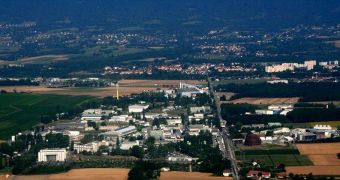Austrian science minister Johannes Hahn has recently announced that the nation would withdraw from the European Organization for Nuclear Research (CERN), seeking to reinvest the money it has caught up in the scientific project into other endeavors. The announcement comes at a very bad time, just six months before the Large Hadron Collider is scheduled to come back online, and to start making its first scientific explorations of the sub-atomic particle world. Austrian scientists are baffled and disappointed at the decision, and say that all of their work for the LHC – the largest particle smasher in the world – went down the drain.
Austria is one of the first nations in Europe to join CERN, and has been an active member of the organization since 1959. Thus far, only two other nations have pulled out of the physics research program: Yugoslavia in 1961, and Spain in 1969, but the latter rejoined the effort in 1983. “It is a black day for Austrian science. We have invested heavily in the construction of the LHC. It's bizarre,” expressed his regret the head of the Institute for High Energy Physics (IHEP), Christian Fabjan. The Institute operates from the Austrian Academy of Sciences, in Vienna, Nature News reports.
“Nobody is happy about the decision. We would have loved to stay in CERN,” said in a press conference Austrian ministry of science spokesman Nikola Donig. He added that funding for science endeavors was tight in this time of financial crisis, and that the government would rather invest the €17 million ($23 million) into other physics, sociology and biotechnology-related research, in the hopes that returns on the money spent would come faster than from CERN and the LHC. At this time, Austria is responsible for ensuring about 2 percent of the Organization's yearly budget.
CERN's director-general Rolf-Dieter Heuer has already planned a trip to the country, and arranged for a meeting between himself and science minister Johannes Hahn, to discuss the issue. However, it’s doubtful that the meeting will have any influence on the decided course of action, as, when it comes to financial gains, scientific research gets bypassed in the blink of an eye. According to the official announcement, Austria will stop its participation in CERN at the end of 2010.

 14 DAY TRIAL //
14 DAY TRIAL //